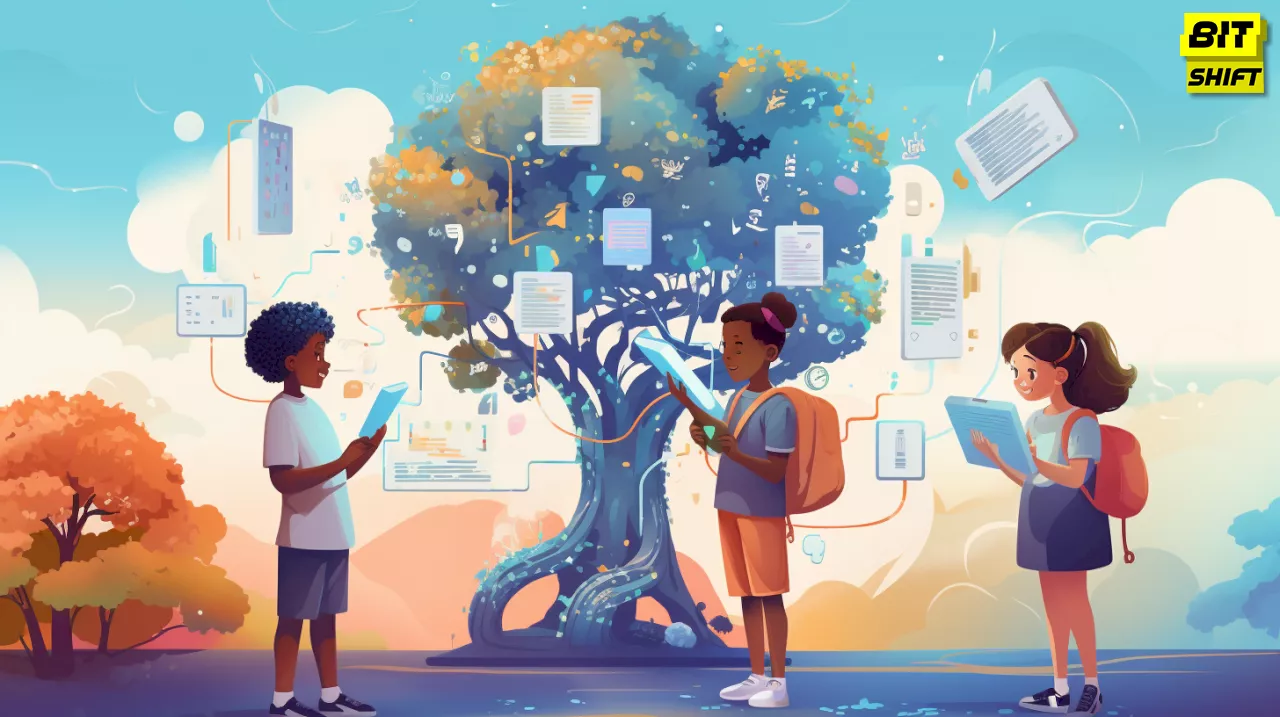
Summary
As artificial intelligence (AI) becomes increasingly embedded in our daily lives, parents must understand its potential risks and benefits. This article provides a comprehensive guide on navigating conversations about AI with children, focusing on the role of AI applications like ChatGPT in their lives.
The time is ripe to talk about artificial intelligence (AI). It may be long overdue. AI applications can perform awe-inspiring tasks and lead children into a labyrinth of challenges. And the chances are, your children are already using them.
However, you don’t need to be an AI expert to discuss it with your kids. To simplify this process, popular AI applications like ChatGPT are being equipped with their version of ‘nutrition labels‘ to help parents and children understand how to use them responsibly. The family advocacy group, Common Sense Media creates these labels.
“AI is best for fiction, not facts. AI is not your friend. AI can have hidden bias.” – Tracy Pizzo Frey, Common Sense Media review leader.
The Current State of AI
The reviews by Common Sense Media expose some uncomfortable truths about the current state of AI. Tracy Pizzo Frey, the review leader at Common Sense Media, distilled the findings into three key lessons to aid families in their conversations. The team’s conclusions might surprise you: ChatGPT, the popular ask-anything chatbot, gets just three stars out of five, while Snapchat’s My AI receives only two stars.
The primary takeaway for parents is that American youths have embraced AI as though it’s magic. The usage of ChatGPT by students is so high that it significantly impacts the service’s overall traffic, aligning with the school calendar year. However, AI is not magic. Today’s generative AI applications have profound limitations and lack sufficient safeguards for children.
Three Key Lessons About AI
Here are three lessons parents need to know about AI to have productive conversations with their children:
AI is best for fiction, not facts:
Despite AI chatbots often providing correct responses, you can’t rely on them for factual accuracy. Generative AI is a word guesser, trying to complete sentences based on patterns from their training data. Anything significant, such as homework assignments or test materials, must be checked for accuracy.
AI is not your friend:
AI applications may imitate a friend, but this is a facade. AI does not understand right from wrong; treating it like a human could harm children’s emotional development. Remember that AI is prone to flattery and agreeing with users, which can create a false sense of validation.
AI can have hidden bias:
As AI becomes an integral part of our lives, it brings along hidden values, including racism, sexism, and other forms of bigotry. The primary issue lies in how AI is trained. It may learn inappropriate things from the darker corners if it consumes information across the internet without sufficient human judgment.
AI is here to stay. Banning AI applications won’t prepare young people for a future where they must master AI tools for work. For parents, this means asking questions about what their kids are doing with these applications to understand the specific risks they might encounter.
Share the Article by the Short Url:






